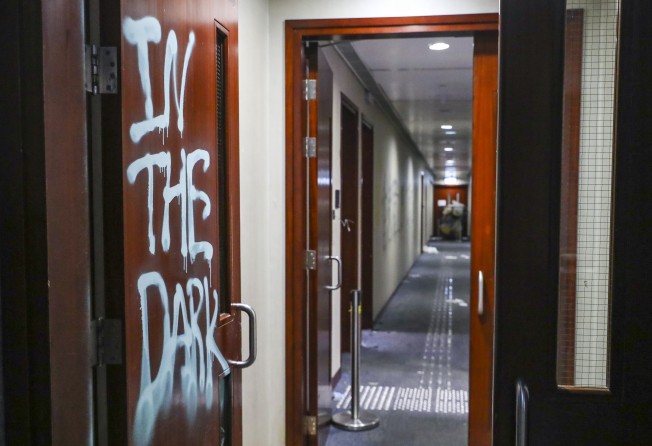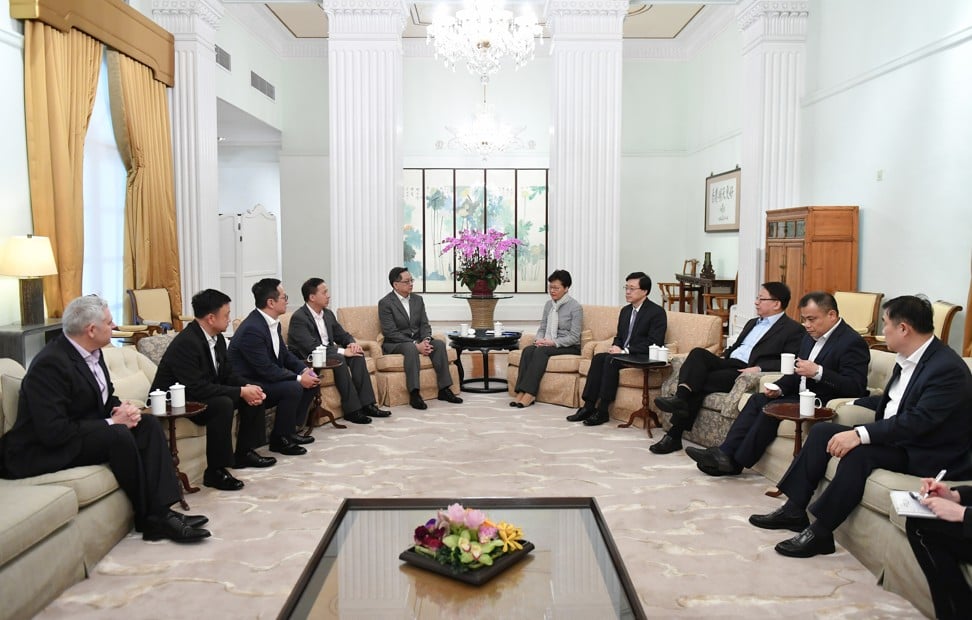Extradition debacle proves Hong Kong’s government needs a radical shake-up to change the way it thinks and acts
- The mishandling of the extradition bill shows that the machinery for governance is all but broken. Drastic changes in officials’ mindset, as well as policies and systems, are the only way to preserve Hong Kong’s status as a vibrant and safe city

The Hong Kong government’s drive to amend its fugitive offenders legislation, better known as the extradition bill, has morphed into the special administrative region’s most critical political crisis since its establishment. Mass protests, which started on June 9, culminated in unprecedented violent attacks on the Legislative Council building on July 1, which are likely to put the legislature out of action for months.
There are calls for heads to roll, the withdrawal of the bill already declared dead by the government, and an amnesty for young people who broke the law, but these will not lift Hong Kong out of its abyss. The mishandling of the bill has revealed that the machinery for governance is all but broken. And this is not something that universal suffrage alone can fix.
From the bill’s introduction to the public — lumped together with two other major announcements — the government’s handling of the issue has shown its reluctance to engage in open debate on the merits and demerits of its proposals.
During Occupy Central, the police deployed an officer, fondly nicknamed “Four O’clock Hui Sir”, to give daily situation reports and answer questions. Hong Kong’s first chief executive, Tung Chee-hwa, also created the senior post of information coordinator in his office to give weekly briefings.
The post fell vacant in 2002 until then chief executive Leung Chun-ying refilled it with former Southern District councillor Andrew Fung Wai-kwong in 2013. Fung, however, rarely made public appearances to explain government policies, discharging his duties by writing columns or blogs under a pseudonym.
But the current administration has apparently given up on public communication. Its senior officials appear to prefer off-the-record briefings or leaks to selected media outlets rather than open, face-to-face encounters. The administration’s chief communication channel with the media is the chief executive’s weekly session before the Executive Council’s meeting on Tuesday morning.
Since the government’s announcement of its de facto withdrawal of the bill on June 15, Chief Executive Carrie Lam Cheng Yuet-ngor has apologised twice to the public for the government’s mishandling of the issue — the first time by way of a press release, the second time in person. Since then, she has made few public appearances, other than to condemn the violent attacks on Legco at 4am on July 2.
Since the government’s traumatic retreat on June 15, the chief executive has given the impression that she is hunkering down in her bunkers, whether to avoid more flak or to excite more antipathy. Whatever the reason, Hong Kong is seen drifting, if not overwhelmed by powerful torrents of public discontent and anger.
During the roughly 10-day period when Lam appeared to have gone into hiding, the government released two photos of her at work. The first one showed her meeting representatives of the four police staff unions — a necessary move to shore up police morale, which has been heavily battered by accusations of excessive violence.
The second one showed Lam meeting representatives of the Friends of Hong Kong Association, an organisation comprising pro-Beijing bigwigs and many members of the Election Committee responsible for choosing the chief executive. This only served to aggravate public perceptions that Lam cared only about communication with her supporters from a small circle. Whoever advised her to do so is hopelessly out of touch with public perceptions.

The greatest joke is that although the government keeps issuing press releases in the name of the “government spokesman”, there is actually no such person. Few people can name the director of information services, supposedly the government’s chief information coordinator and public relations adviser.
The authorities in Hong Kong, supposedly China’s most international city, lag miserably behind ministries of the People’s Republic in deploying a spokesman to engage the media daily. The government pleads difficulty in finding the right person, and in the time and resources required to train someone. But 16 years after the national security legislation debacle, the first major communication failure, has the government not learned its lessons?
Responses by senior officials to criticism of the extradition bill have been missing in the international media since the onset of the controversy. The gaps have been filled by Executive Council members and legislators not afraid to take on the foreign media. What kind of government declines to talk to the foreign media, given the magnitude of the international attention the bill has provoked?
The government’s youth policy, among others, has also failed pathetically, judging from the astounding numbers of young people who took to the streets or engaged in violence. The Policy Innovation and Co-ordination Office, which replaced the Central Policy Unit, has clearly not been discharging the same function of engaging the young and restless, the dissenters and doubters of our society.
The Member Self-Recommendation Scheme for Youth, which encourages young people to put themselves forward as members of government advisory boards and committees, is a step in the right direction but its impact is limited. The “Be a Government Official for a Day” programme, for young people to shadow senior officials, is another sick joke.
It is difficult to see how young people can connect with much older senior officials by watching them cut ribbons, rub shoulders with the rich and famous, and listen to boring speeches. The government needs a radical shake-up, both in its mindset, and its policies and systems, or Hong Kong’s days as a vibrant, and above all, safe, city of Asia will be numbered.
Regina Ip Lau Suk-yee is a lawmaker and chairwoman of the New People’s Party